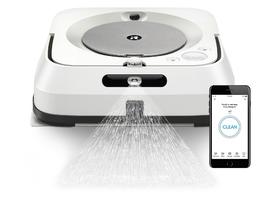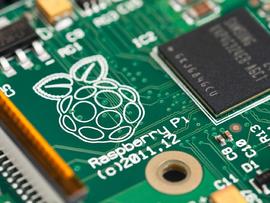Free of heavy metals and able to reportedly outperform existing batteries, the discovery could potentially make lithium-ion obsolete.
| player version | 0.42.297 |
| playback state | 2 |
| duration | 5 |
| current time | 3.00 |
| buffer length | 0.00 |
| average dropped (fps) | 0.00 |

IBM research has announced a breakthrough in battery technology that it says could make lithium-ion batteries a thing of the past. The new technology can charge incredibly quickly, has low flammability, and contains no heavy metals, making it far more environmentally friendly than current battery technology.
Battery performance complaints are nothing new: Lithium-ion batteries have long been one of the most frustrating parts of modern technology. They go bad, charge slowly, are prone to exploding, and are horrible for the environment. IBM's new battery reportedly eliminates those exact headaches.
SEE: 5G smartphones: A cheat sheet (free PDF) (TechRepublic)
IBM is keeping quiet about how its new battery is made, only saying that it's made of "three new and different proprietary materials, which have never before been recorded as being combined in a battery."
The three components, IBM said, can all be extracted from sea water, meaning the environmental damage from, and humanitarian cost of, mining heavy metals for batteries could be eliminated.
Extracting battery components from sea water also reduces costs, IBM said, making this new battery not only better for the environment and people, but also potentially more affordable.
How the new IBM battery stacks up to current technology
Environmental friendliness isn't the only thing that IBM's new battery has going for it. According to IBM, tests of the new battery "proved it can be optimized to surpass the capabilities of lithium-ion batteries in a number of individual categories including lower costs, faster charging time, higher power and energy density, strong energy efficiency and low flammability."
That faster charging time IBM mentioned is one of the standouts of its report on this battery breakthrough: It can reportedly reach an 80% charge in just five minutes, all without compromising discharge capacity.
Along with that impressive recharge rate are several other performance improvements, IBM said:
- It can reach a power density of more than 10,000 watts per liter;
- It can reach an energy density of more than 800 watt hours per liter, which is comparable to modern lithium ion batteries;
- It has an energy efficiency (defined by IBM as "the ratio of the energy to discharge the battery over the energy to charge the battery") of over 90%.
IBM mentions that the battery can be configured in a number of different ways, making it ideal for multiple use cases from new energy infrastructure to electric vehicles.
While IBM hasn't revealed whether its new battery technology has progressed beyond the testing phase, its blog post about the breakthrough uses promising language about its potential applications as a lithium ion replacement.
It's easy to get excited about breakthroughs in battery technology, especially if you're frequently affected by the poor life of today's batteries. Don't get ahead of yourself, though: IBM may sound optimistic about its breakthrough but stories like this are nothing new.
Also see
- DevOps: A cheat sheet (TechRepublic)
- Microsoft HoloLens 2: An insider's guide (TechRepublic download)
- How smart tech is transforming the transportation industry (TechRepublic Premium)
- Technology that changed us: The 1970s, from Pong to Apollo (ZDNet)
- These smart plugs are the secret to a seamless smart home (CNET)
- The 10 most important iPhone apps of all time (Download.com)
- Tom Merritt's Top 5 series (TechRepublic on Flipboard)


















.jpg)